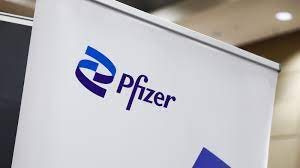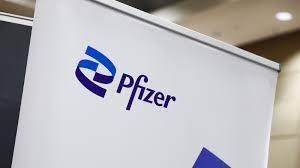
Pfizer predicted that its revenues in 2024 may fall by as much as $5 billion from Wall Street estimates. Top officials claimed that this move gave a more trustworthy picture of the company's COVID-19 business than they had given this year, which caused shares to drop to a 10-year low.
After peaking at $57 billion in 2022, Pfizer's COVID-19 vaccine and treatment revenue is now predicted to reach $8 billion in 2024, a further decline from experts' $13 billion estimate and Pfizer's own revised estimate of $12.5 billion for this year.
"We want to be conservative," Pfizer Chief Executive Officer Albert Bourla said on a conference call with investors. "We want to be reliable so we won't create uncertainty (again), which was the case, unfortunately, this year."
Pfizer started selling a new RSV vaccine and used some of its COVID windfall to acquire businesses, including a $43 billion deal that is expected to finalise this week for cancer drugmaker Seagen. However, the current RSV launch was a letdown, lagging behind a competitor's shot, and shares have dropped 44% so far this year.
Furthermore, fewer people in the United States are receiving the most recent updated booster shots for COVID-19, with only 17% of eligible individuals receiving these shots. This decline might be attributed in part to vaccine fatigue and waning public awareness over the virus.
The pharmaceutical company, situated in New York, has projected an adjusted profit of $2.05 to $2.25 per share for 2024, which is less than the $3.16 predicted by analysts.
Wednesday saw a further 6.7% decline in Pfizer shares, resulting in a market capitalization loss of around $11 billion.
US shares of BioNTech, Pfizer's German vaccine partner, dropped 5.5%, while Moderna, a competitor for the COVID vaccine, increased 0.7%.
"They're in a bad place honestly," said Jeff Jonas, portfolio manager for Gabelli Funds, which owned over 750,000 Pfizer shares as of September, according to LSEG data.
According to Jonas, the company's debt load is high in order to pursue partnerships such as Seagen. But he doubts the business has taken enough steps to completely make up for lost sales of medications that are anticipated to face generic competition in the upcoming year.
"They're stuck in their ways and then they're not necessarily going to make the type of bold move that they need to reinvigorate R&D," Jonas said of research and development.
Revenue growth from Seagen is anticipated to reach $3.1 billion in 2019.
Less optimistic projections were made the day after Pfizer announced it would restructure its oncology business to incorporate the acquisition of Seagen. On Wednesday, it also increased its $500 million cost-cutting goal.
LSEG data shows that Pfizer's current sales expectations are between $58.5 billion and $61.5 billion, which is lower than the analysts' average forecast of $63.17 billion.
Paxlovid, an antiviral medication, and the COVID-19 vaccine helped Pfizer earn nearly $100 billion in revenue in 2022. In 2023, Pfizer had projected COVID revenues of $21.5 million; however, they subsequently reduced that estimate by around 40%.
According to J.P. Morgan analyst Chris Schott, the COVID-19 sales projections "probably represent a floor for 2024 sales."
Pfizer had to start a programme to reduce staff and costs as a result of the sharp decline in sales of COVID products. This programme is currently anticipated to save the company at least $4 billion annually by the end of 2024.
Pfizer announced on Tuesday that it would restructure its commercial business—which does not include oncology—into two divisions, one centred on the US and the other on the rest of the globe. Chief Commercial Officer Angela Hwang would also be stepping down.
Pfizer's management, according to Citi analyst Andrew Baum, is moving more quickly to address the company's poor stock performance. Many Pfizer products are anticipated to lose their patents in the coming years, therefore the corporation finds it challenging to develop viable high-potential pipeline assets.
(Source:www.foxbusiness.com)
After peaking at $57 billion in 2022, Pfizer's COVID-19 vaccine and treatment revenue is now predicted to reach $8 billion in 2024, a further decline from experts' $13 billion estimate and Pfizer's own revised estimate of $12.5 billion for this year.
"We want to be conservative," Pfizer Chief Executive Officer Albert Bourla said on a conference call with investors. "We want to be reliable so we won't create uncertainty (again), which was the case, unfortunately, this year."
Pfizer started selling a new RSV vaccine and used some of its COVID windfall to acquire businesses, including a $43 billion deal that is expected to finalise this week for cancer drugmaker Seagen. However, the current RSV launch was a letdown, lagging behind a competitor's shot, and shares have dropped 44% so far this year.
Furthermore, fewer people in the United States are receiving the most recent updated booster shots for COVID-19, with only 17% of eligible individuals receiving these shots. This decline might be attributed in part to vaccine fatigue and waning public awareness over the virus.
The pharmaceutical company, situated in New York, has projected an adjusted profit of $2.05 to $2.25 per share for 2024, which is less than the $3.16 predicted by analysts.
Wednesday saw a further 6.7% decline in Pfizer shares, resulting in a market capitalization loss of around $11 billion.
US shares of BioNTech, Pfizer's German vaccine partner, dropped 5.5%, while Moderna, a competitor for the COVID vaccine, increased 0.7%.
"They're in a bad place honestly," said Jeff Jonas, portfolio manager for Gabelli Funds, which owned over 750,000 Pfizer shares as of September, according to LSEG data.
According to Jonas, the company's debt load is high in order to pursue partnerships such as Seagen. But he doubts the business has taken enough steps to completely make up for lost sales of medications that are anticipated to face generic competition in the upcoming year.
"They're stuck in their ways and then they're not necessarily going to make the type of bold move that they need to reinvigorate R&D," Jonas said of research and development.
Revenue growth from Seagen is anticipated to reach $3.1 billion in 2019.
Less optimistic projections were made the day after Pfizer announced it would restructure its oncology business to incorporate the acquisition of Seagen. On Wednesday, it also increased its $500 million cost-cutting goal.
LSEG data shows that Pfizer's current sales expectations are between $58.5 billion and $61.5 billion, which is lower than the analysts' average forecast of $63.17 billion.
Paxlovid, an antiviral medication, and the COVID-19 vaccine helped Pfizer earn nearly $100 billion in revenue in 2022. In 2023, Pfizer had projected COVID revenues of $21.5 million; however, they subsequently reduced that estimate by around 40%.
According to J.P. Morgan analyst Chris Schott, the COVID-19 sales projections "probably represent a floor for 2024 sales."
Pfizer had to start a programme to reduce staff and costs as a result of the sharp decline in sales of COVID products. This programme is currently anticipated to save the company at least $4 billion annually by the end of 2024.
Pfizer announced on Tuesday that it would restructure its commercial business—which does not include oncology—into two divisions, one centred on the US and the other on the rest of the globe. Chief Commercial Officer Angela Hwang would also be stepping down.
Pfizer's management, according to Citi analyst Andrew Baum, is moving more quickly to address the company's poor stock performance. Many Pfizer products are anticipated to lose their patents in the coming years, therefore the corporation finds it challenging to develop viable high-potential pipeline assets.
(Source:www.foxbusiness.com)





